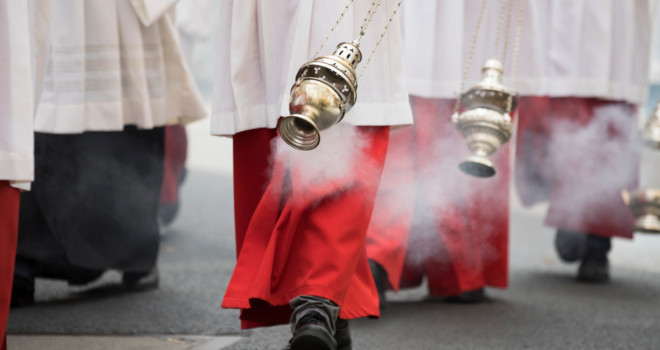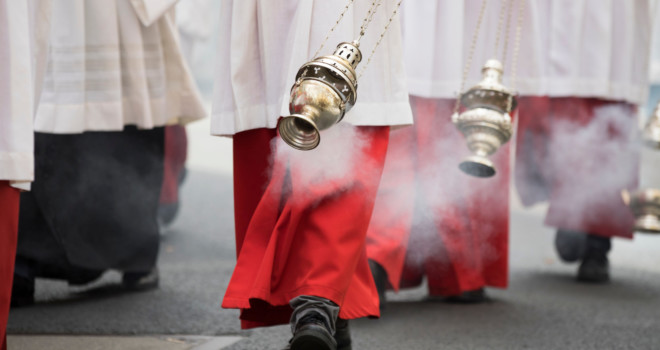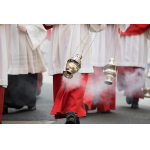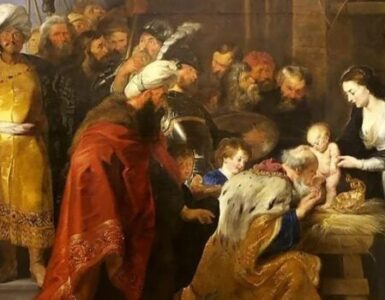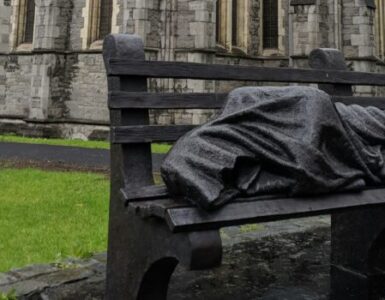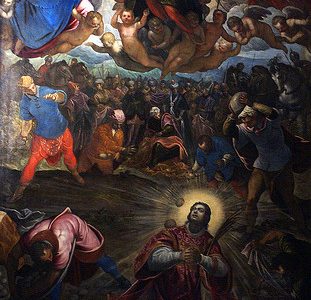Years ago, I used to offer Mass (according to the traditional Roman Missal) for Mother Teresa’s Sisters, the Missionaries of Charity, in London. When visiting the sick in India, those Sisters would evaluate distances neither in metric nor in imperial measurements, but in Ave Marias. One can imagine an instruction to a new Sister: “You will have time to pop in at poor Mrs Aaradhka’s, as she lives only three decades from the convent.”
We, in turn, may ask ourselves: What frame of reference do we apply to our lives? If, according to Aristotle, “time is the measure of motion” (i.e., a change of any sort, including
qualitative), then what rhythm do we choose to measure the pace of our existence? Several are offered us. Under difficult economic circumstances, many people plan from one monthly
paycheck to the next, as long as one does not lose his job, please God. Or, on a lighter note: from one football game to the next; or from the winter sales to the summer sales. Or, on a shorter basis, from one Saturday-evening entertainment at one’s favorite pub to the next.
In the same Sisters’ sacristy in Southwark, a simple reminder was pinned on the wall above the table where the vestments were laid ready before Holy Mass. It read as follows: “Holy Priest of God, remember to offer this Mass as if it were your first Mass, your last Mass, your only Mass.”
For many of us, practicing Catholics, the measure of our lives may be Sunday Mass. We thus live from one Sunday Mass to the next. Such appears to be the true pulse in the Mystical Body of Christ, the Church. Every Sunday in particular, the whole Church commemorates the Resurrection of her Lord, Savior, and Spouse, Jesus Christ. Then, in the Eucharistic Sacrifice, the redeeming Blood is sent to and through us, Christ’s members, irrigating the entire Body. Each of us, if adequately prepared, is thus united to the Savior in an embrace of faith, the most intimate a soul can ever experience here on Earth. The deeper one appreciates this truth, the more one realizes the centrality of the Mass in one’s daily life. Gradually, gently, the time unit adjusts from Sunday Mass to any Mass. One day, the soul realizes, as if awakening, that it simply needs daily Mass. And to her surprise, rather than being frightened by this discovery, the
soul finds herself filled with deferential desire.
Consecutive Masses
On All Souls’ Day (and at Christmas), the liturgy of the Church allows us to reach deeper into this truth. Traditionally, every priest may offer three Requiem Masses on All Souls’ Day, so as to shower upon the suffering souls in Purgatory the merits of Christ’s redeeming Sacrifice. A lot could be said about the scriptural riches of this set of three Requiem Masses, each of them with its proper Epistle, Gospel, and Collect. But in this instance, it is the rubrics we are interested in, and they refer to “the priest who, on the feast of the Nativty of the Lord or on the Commemoration of all the Faithful departed, offers two or three Masses without interruption,
that is, without leaving the altar.”
When starting with the “Introibo ad altare Dei” of the second Requiem, right after the Last Gospel of the first Requiem, the repetitiveness still feels unfamiliar, or even a bit heavy—although happily assumed, for the sake of the holy souls. But from the Consecration of the second Mass and, even more, when starting the third Mass, something mysterious happens in the sensitivity of the celebrant and of the congregation. The reiteration of the same liturgical gestures and words for the third time in an hour is now freed from any suggestion of artificiality. The shortsighted suspicion of a burdensome circularity has similarly vanished. Instead, one has entered a dimension where simply the Mass is the measure of motion. The liturgical offering of the Eucharistic Sacrifice has by then become the prevalent unit of reference to time and space. All that the memory recalls from before the Mass in progress is another Mass, and before that previous Mass, still another one. A strange feeling thus arises, not of dizziness but rather of acuteness: that there is no obvious reason why the repetition of the Offering should ever end—just as, in normal circumstances, one does not envisage that a sequence of sixty minutes may not follow the present hour, and again and again until the consummation of ages.
During this third consecutive Requiem, therefore, the Mass ceases to appear as an action performed among others in the course of a day or a week; rather, it reveals itself as that
which it truly is: the rhythm of Redemption. The continuous flow from the words “plenum gratiae et veritatis,” concluding the Last Gospel, to “Introibo ad altare Dei” at the beginning
of the next Mass henceforth appears as the medium essential to any genuine progress. The duration of that third Mass feels like that of the gyrating of oars in and out of water: each
strike—each Mass—brings the ship nearer to the Ocean, that is, to eternity as one rows down a river of grace.
Attending three such consecutive low Masses and experiencing this truth helps our soul realize that a day when one has not attended—or offered—Holy Mass is deficient, in inverse proportion to the legitimacy of our impediments in God’s eyes. We may assess how genuine our given obstacles are by asking ourselves if that weekday without Holy Mass is for us a grief, or a relief, or goes unnoticed. If we do not go to Mass on a weekday (not of obligation), let us deplore it, not ignore it. Otherwise, although we are clearly not breaking any precept of the Church, our hindrances may well prove to have been pretexts, when our soul shall stand in the light of Love Incarnate.
Our Blessed Lord calls each of us to the aspersion of His Precious Blood shed for our purification and to the sharing of His immaculate flesh pierced for our liberation, as reenacted at every Mass. The more regularly we attend (with devotion), the more fruitfully His merits work in us and in those for whom we intercede. If we cannot travel bodily to God’s altar some weekday, surely no walls, no strikes, no traffic jams, no overdraft, no sickness will stop our souls. So let us check in our local parish or community bulletin to see what time Holy Mass is offered, and in which church, and let us unite our hearts with the redeeming Offering at that moment, through a spiritual communion. This simple practice will help us reveal the Eucharistic Sacrifice as the true center of our lives. Please God, the daily obstacles between our lips and the Sacred Host
will diminish in number and in size like shadows, as the Sun of Justice and Mercy rises in the hands of His priest: “Ecce Agnus Dei, ecce qui tollit peccata mundi.”
✠
Editor’s Note: the above excerpt is taken from Ego Eimi – It is I: Falling in Eucharistic Love, available now from Sophia Institute Press.


